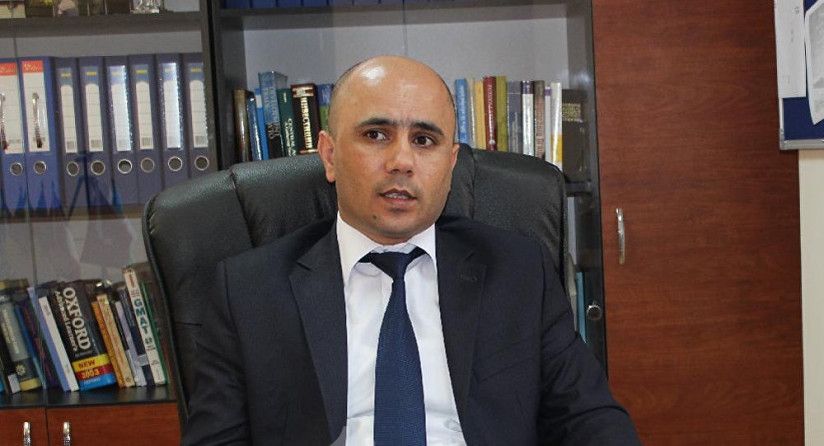|
|
TODAY.AZ / Business
Azerbaijan affirms itself pioneer of green energy projects in S Caucasus
15 February 2024 [20:33] - TODAY.AZ
 By Azernews
By Azernews In a bid to combat the escalating threat of climate change, the United Arab Emirates (UAE), Azerbaijan, and Brazil have announced the formation of a "troika" alliance aimed at championing an international accord to cap global warming at 1.5 degrees Celsius. This strategic move underscores a concerted effort by these nations, propelled by the urgency to mitigate the adverse impacts of climate change and honor commitments made under the Dubai agreement.
Here poses several questions: Will the Azerbaijani side be able to achieve its obligations under the framework of the COP project during 2030–2050? What will the benefits of hosting COP 29 in Azerbaijan be? Generally, how is Azerbaijan perceived on the global stage? Does Azerbaijan possess the capacity to fulfil its commitments under the COP project? While Azerbaijan's primary revenue comes from the oil sector, it also takes on the responsibility of hosting initiatives like COP.
In the meantime, it is interesting to study Azerbaijan's ability to host such an international event and implement commitments from the perspective of the world community.
Speaking to Azernews, economist Rashad Hasanov emphasised that oil-producing countries, including Azerbaijan, are integral parts of the global community and are not immune to the negative impacts of climate change.

He stressed the importance of these countries actively participating in proposed initiatives to address environmental concerns and take on more responsibility in mitigating the consequences of energy production.
Rashad Hasanov sees the holding of COP29 in Azerbaijan as an opportunity to raise awareness and bring relevant issues to the national agenda.
He believes that while the event may temporarily divert the government's focus and incur additional costs, it can lead to positive long-term outcomes, such as the implementation of measures to combat climate change and the integration of environmental goals into state policies and strategies.
The economist underscored the importance of the government's continued commitment to these efforts beyond COP29 to fulfil its obligations under the Convention and contribute positively to reducing greenhouse gas emissions.
Valentina Chabert, Ph.D. Fellow Sapienza University of Rome and Member of the Advisory Board – The Hague Research Institute, said in her comment to Azernews that due to its geographical position, Azerbaijan holds a strategic position as a bridge between the East and the West, and especially as a fundamental actor for Eurasian connectivity.

"Globally speaking, Azerbaijan is well-known for its oil & gas production capability, which enabled the European Commission and several other European countries (but not only) to consider Azerbaijan as a reliable partner for granting European energy security in turbulent times. Indeed, after the Russian invasion of Ukraine, Azerbaijan has been included in the EU strategy aimed at diminishing energy dependency on Russia. Similarly, through the Middle Corridor, Azerbaijan plays an equal strategic position, as it allows it to circumvent Russia while exploiting different trade and transportation routes."
"In my opinion, hosting COP29 will be particularly beneficial for Azerbaijan. We do not have to forget that this great opportunity also represents one of the most recent and important examples of confidence-building measures between Armenia and Azerbaijan after years of war and occupation. Indeed, in exchange for a number of war prisoners, Armenia supported Azerbaijan's candidacy to host COP29, thereby opening up novel prospects to reach peace in the region," she added.
According to V. Chabert, the fact that Azerbaijan’s primary revenue comes from the oil sector should not be treated as an indicator of a possible failure of COP29 initiatives.
"First of all, it is a well-established and important practice to hold Conference of the parties in oil-producing countries, as well as a way of spreading awareness among polluting countries on the importance of climate-related issues. Secondly, over the last few years, Azerbaijan has been trying to affirm itself as a pioneer of green energy projects in the South Caucasus. An example is the reconstruction of Karabakh, in which smart villages will proliferate in the next few years following the model of the already rebuilt Aghali village in Zangilan district. Moreover, in November 2021, during the 26th COP held in Glasgow, Azerbaijan renewed its voluntary obligations by reducing the amount of GHG emissions by 40% by 2050 and declaring the liberated territories a “net zero emission” zone. Karabakh, East Zangazur, and the Nakhchivan Autonomous Republic have been declared green energy zones, as these regions have a significant potential to use various resources of renewable energy (hydropower, solar power, wind power, and geothermal power). Eventually, in recent years, accelerating the use of renewable energy became a key element of Azerbaijan’s energy policy."
In conclusion, the formation of the troika by COP hosts marks a pivotal moment in the global fight against climate change. By uniting behind the common goal of limiting global warming to 1.5 degrees Celsius, the UAE, Azerbaijan, and Brazil underscore their commitment to collective action and international solidarity. However, translating aspirations into tangible outcomes will require sustained political will, innovative financing solutions, and inclusive engagement. As the world stands at a crossroads, the troika offers a beacon of hope in navigating the complex challenges of climate change and forging a path towards a more sustainable and resilient future.
URL: http://www.today.az/news/business/244906.html
 Print version
Print version
Connect with us. Get latest news and updates.
See Also
- 22 November 2024 [17:47]
Azerbaijan's tourism opportunities exhibited in Uzbekistan - 22 November 2024 [16:35]
Every tenth degree of global warming increases damage costs, warns Germany’s FM at COP29 - 22 November 2024 [15:16]
Azerbaijan, Turkiye discuss green energy supply and joint projects - 22 November 2024 [11:42]
Congress held with participation of negotiating teams within COP29 - 22 November 2024 [11:01]
Problems relating to plastic waste management considered at COP29 - 22 November 2024 [10:43]
UK Minister warns of ocean at risk of global warming - 22 November 2024 [10:21]
Malmö FC joins Football Alliance for climate at COP29 - 22 November 2024 [10:00]
State Border Service completes COP29 preparations successfully - 21 November 2024 [15:35]
Azerbaijani minister addresses critical issues of Climate, Nature, and Indigenous Rights - 21 November 2024 [15:16]
Scottish Parliament supports COP29 peace efforts and Azerbaijan's initiatives
Most Popular
 They were so offended that it was even funny. What does the French Foreign Ministry expect from Azerbaijan?
They were so offended that it was even funny. What does the French Foreign Ministry expect from Azerbaijan?
 Armenians promise to get Woodrow Wilson's ideas out of the coffin
Armenians promise to get Woodrow Wilson's ideas out of the coffin
 Macron's visit to Chile ends with failure
Macron's visit to Chile ends with failure
 Sad clowns in the arena: the old repertoire of Azerbaijan's detractors
Sad clowns in the arena: the old repertoire of Azerbaijan's detractors
 Communiqué of Second High-Level Meeting of Culture Ministers on Culture-Based Climate Action adopted
Communiqué of Second High-Level Meeting of Culture Ministers on Culture-Based Climate Action adopted
 Russian House in Baku to host evening in honor of Alfred Schnittke
Russian House in Baku to host evening in honor of Alfred Schnittke
 Azerbaijan leading way in decarbonized transport, says ADB Official
Azerbaijan leading way in decarbonized transport, says ADB Official
